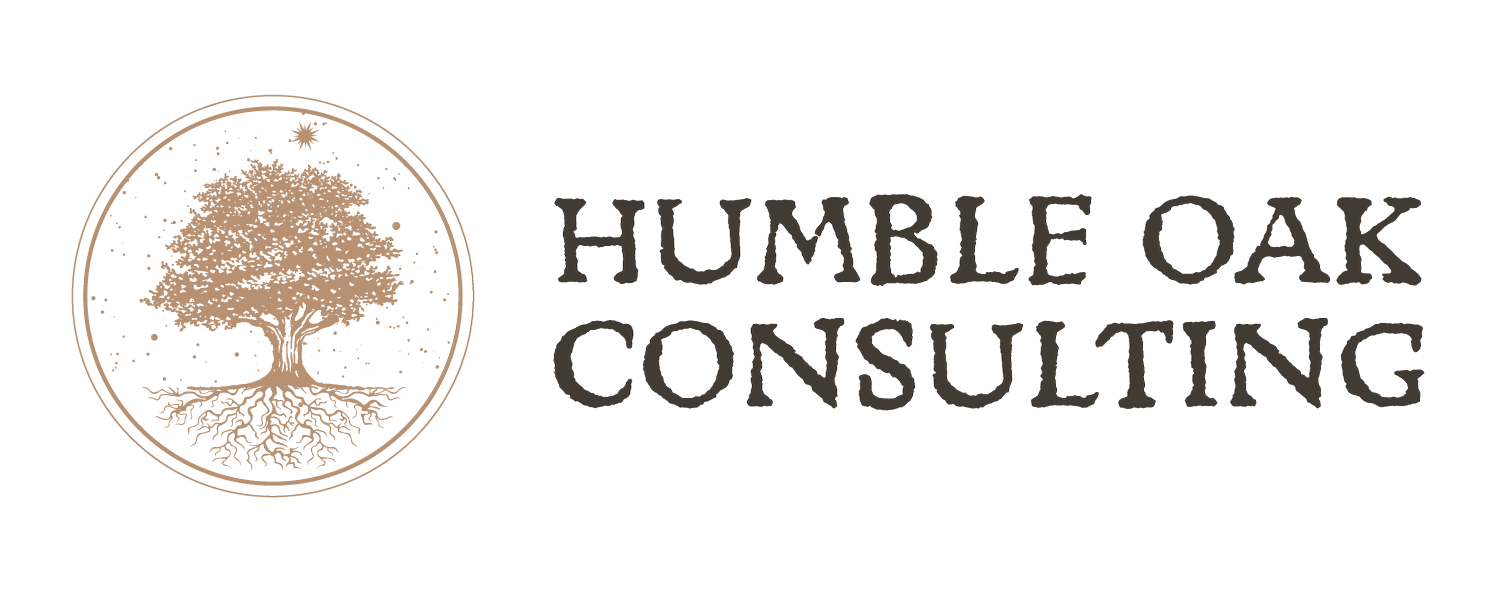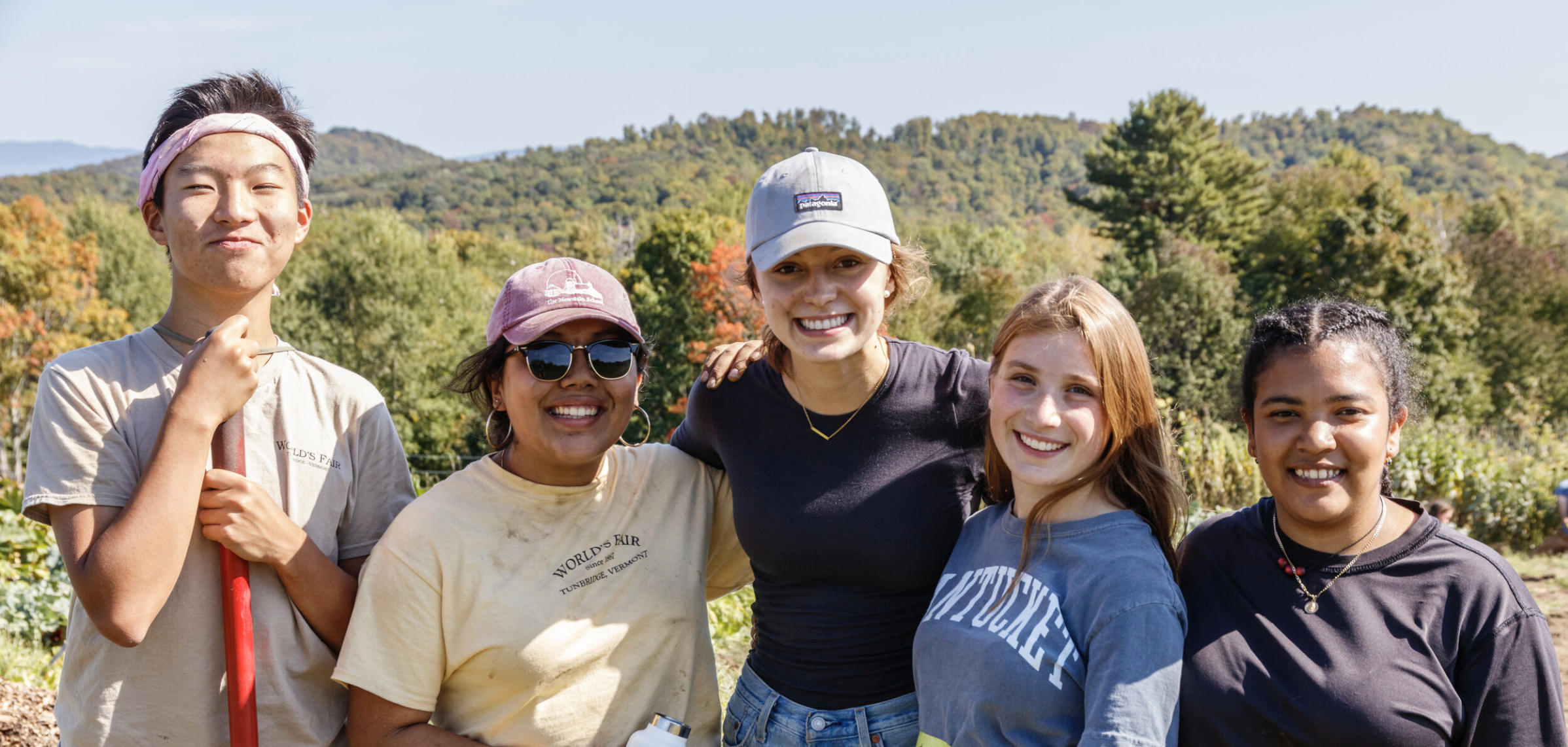The Mountain School: A New Journey
Image Credits: https://www.mountainschool.org/
Lucretia Witte, founder of Humble Oak, recently started serving The Mountain School as Director of Admissions. Lucretia shares why she is excited about the Mountain School and how it connects to her work in the diversity, equity and inclusion space.
How would you describe The Mountain School's program and what do students gain from participating?
The Mountain School is a land-based semester program in Vershire, VT that serves students on many levels. Firstly, it offers the profound experience of living in a place that is different from where a student has grown up.
Secondly, the program is designed to connect students to the land through sustainable agriculture. Students eat what they have grown and stack wood for the next semester to burn, contributing to their sense of connection to the grounds they live on.
Thirdly, everything at The Mountain School is designed around the ethos of collaboration and interdependence. Students are encouraged to shift their thinking from, “I climbed the mountain and I succeeded,” to, “we climbed the mountain, and look at how we helped each other along the way.”
How does The Mountain School incorporate DEI into its admissions process and what goals do you have for furthering these efforts as you begin your role?
Something that attracted me to The Mountain School is that faculty and students have co-created a social justice action plan, which goes hand-in-hand with the extensive fundraising efforts the director undertook to make admission need-blind. I think this approach to admissions is important because during my years in policy school, I learned that the opportunity gap is much harder to close than the achievement gap. What that means is that even if students have excellent teachers, there are other less measurable learning experiences that are also important– meeting new people, living in a place other than where you where born, taking responsibility for meaningful work, and taking leadership on matters you care about. I believe the Mountain School offers students these opportunities, and the fact that any student can apply and be accepted with 100% of their financial need being met is really meaningful.
As I begin my role as the Admissions Director, I am considering where we do outreach and present our school to potential students. I will be looking to connect with parents and communities that have never sent a student to our school before. I am also developing a knowledge of what admitted students are excited and nervous about to make sure new students have a positive experience as they begin their semester-long journey.
My colleague Katrina Monzón will be transitioning into an Enrollment Director role that is focused on creating a bridge from admission to attendance and ensuring students get all adequate credits, receive support, and families feel confident they made the right choice to send their child to The Mountain School. We want to do all that we can to make sure that we offer an inclusive environment to all students.
Image Credits: https://www.mountainschool.org/
Supporting DEI holistically goes beyond admissions. Once admitted, how does The Mountain School support BIPOC and LGBTQ+ students, as well as students with disabilities?
The Mountain School is constantly revising the faculty and student handbook to keep with best practices of DEI. There are also two staff members who hold the additional role of Directors of Justice, Equity and Inclusion. They are present as resources to proactively work towards a more inclusive school environment and are also there to respond when a situation arises.
The Mountain School has additionally identified different sets of practices for discipline issues and cultural issues, making a conscious effort not to lump them together. For example, a situation where a student is not completing their assigned duties would be dealt with in a different way than a situation where a student has engaged in a microaggression.
Finally, there is also a full-time mental health counselor on staff to support students beyond the needs that advisors are able to address.
The Mountain School places a strong emphasis on the environment and exposure to nature. What do you see as the connection between the school, DEI and environmentalism?
I see so many levels on which to answer this question. On the most basic level, if we don’t have an environment to live in, humanity cannot survive. My perception is that global warming and its impacts like wildfires, heat islands, and flooding are causing a growing number of people to compete for smaller areas of livable land. This competition turns up the heat on any sort of competitive or independent ideologies.
My personal belief is that the only antidote is to come at the situation from both sides – cultivating a philosophy of interdependence rather than independence and stewarding the earth that we have so that we can abate and maybe even heal from the effects of climate change on our habitat.
On a more grandiose philosophical level, many studies have shown that exposure to nature can contribute to a sense of awe that has positive effects on mental health. Working outside like students do on the farm has benefits to physical health. I ultimately envision a world where people from all backgrounds are healthy and thriving, and we have to instill personal practices as well as a larger sense of cooperation and stewardship in order for this to be possible.
This is just thinking about how environmentalism benefits humans; we also share earth with many other species and should take that into consideration as well. If we take the concept of diversity to its biological meaning, we recognize that we are interdependent with other species as well. When we eradicate bugs that bother us, it has an effect on the birds and we will eventually find ourselves in the woods where no birds are singing.
When we work with the earth, we realize that humans are not here to organize earth around what works best with us. We have to accept the interdependence, even when it’s not always clear or obvious how we are interconnected.
Image Credits: https://www.mountainschool.org/
In your view, what would a successful semester look like for a student?
A successful semester varies by the student. Some students might want to experience an environment different from the one they live in, while others might come to find meaning in academic study or to create meaningful friendships with students of different backgrounds.
I would assess it by asking students to come up with a table that lists “What I used to think” and “Now I think”. If we can see significant evidence of perspectives changing and mental malleability, that is valuable and reflective of success. Being permeable to other ways of seeing things, even on issues we really care about, will help shape thoughtful and compassionate leaders of tomorrow.



